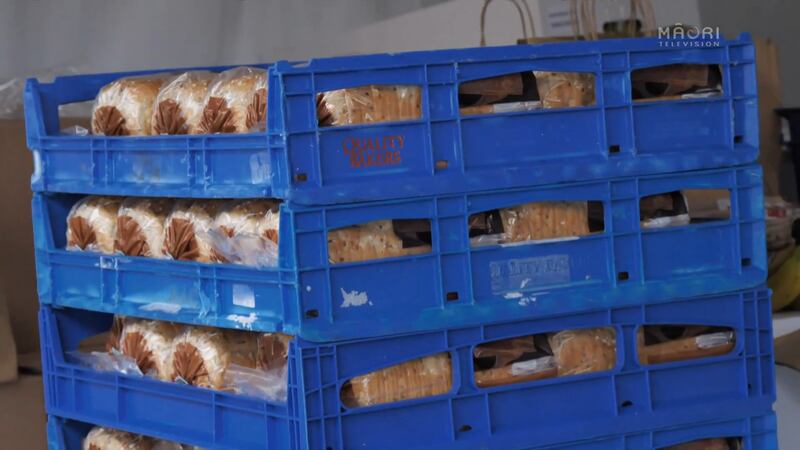Auckland Action Against Poverty alleges many beneficiaries are being denied additional assistance such as food grants.
“There’s a really toxic culture that exists at WINZ,” AAAP spokesperson Brooke Fiafia says.
“It's based on discrimination.”
Fiafia says beneficiaries have to prove exceptional circumstances to qualify for extra assistance.
“People who are receiving benefits have every single purchase scrutinised,” Fiafia says.
But she believes benefit payments are not enough to live on as it is, so going through the Work and Income processes required to get food grants is unnecessary, she says.
"The $490 Covid benefit actually provides us with evidence to say the current benefit levels aren't enough."
She says Covid has provided an opportunity to make a better system for Māori and Pasifika, a system she says should be free of sanction and obligation.
Almost $391m in hardship grants

Photo / File
In the April to June quarter of 2020, MSD gave out almost $64.2 million in food grants. On average MSD would ordinarily have given out about $18.2 million in the equivalent timeframe.
Emergency housing grants went up too - almost $79.3 million given out as well.
The quarterly average for housing grants since 2016 is $25.1 million.
Every year, kai and accommodation are the two most requested grants in Aotearoa. The MSD website says the amount paid out in food grants depends on the situation. But with over 566,000 applications for food grants from April-June 2020, if everyone received the same amount, it works out at about $113 per applicant.
Work and Income is funded to give hardship grants for a variety of reasons, including whiteware purchases, paying for power and gas and getting a driver's licence.
The ultimate stress test
Te Ātiawa and Ngāti Tama economist Matthew Roskruge says crises like Covid can help identify weaknesses in government welfare, such as weaknesses that would not exist if the welfare system was robust enough to start with.
"Ideally, a strong welfare system would already be in place."
Roskruge says the government has done a good job at creating a safety net but, as time goes on, the net is thinning.
He wonders if subsidising businesses and giving displaced workers souped-up benefits is delaying the inevitable. He questions whether the government needed to prop up businesses or not.
"There is certainly a strong argument for allowing businesses to 'die' so that new businesses can be 'born'," Roskruge says.
MSD responds
Kay Read, client service delivery manager for Work and Income says they take the responsibility to serve the country seriously.
"We’ve taken a number of steps to strengthen our service culture and provide as much support as possible during this challenging time," she says.
Part of that, Read says is streamlining Work and Income services to be more accessible.
"It is now easier for clients to access information and support that’s right for them through our improved online and phone services," she says.
Increasing the amount paid out in food and emergency housing grants was key to reducing the damage caused by Covid-19.
Kay Read says their client satisfaction surveys show overall public approval for Work and Income is high. In the period from July 2019 to March 2020, the average client satisfaction rating from those surveyed was 8.5 out of 10, across 71,133 survey responses.
She adds that engaging with community based advocates helps them to be informed on individual whānau and client situations.
"These are used as part of our learning environment," Kay Read says.
She concludes that there's always room for improvement and Work and Income are committed to improving their services every day.

